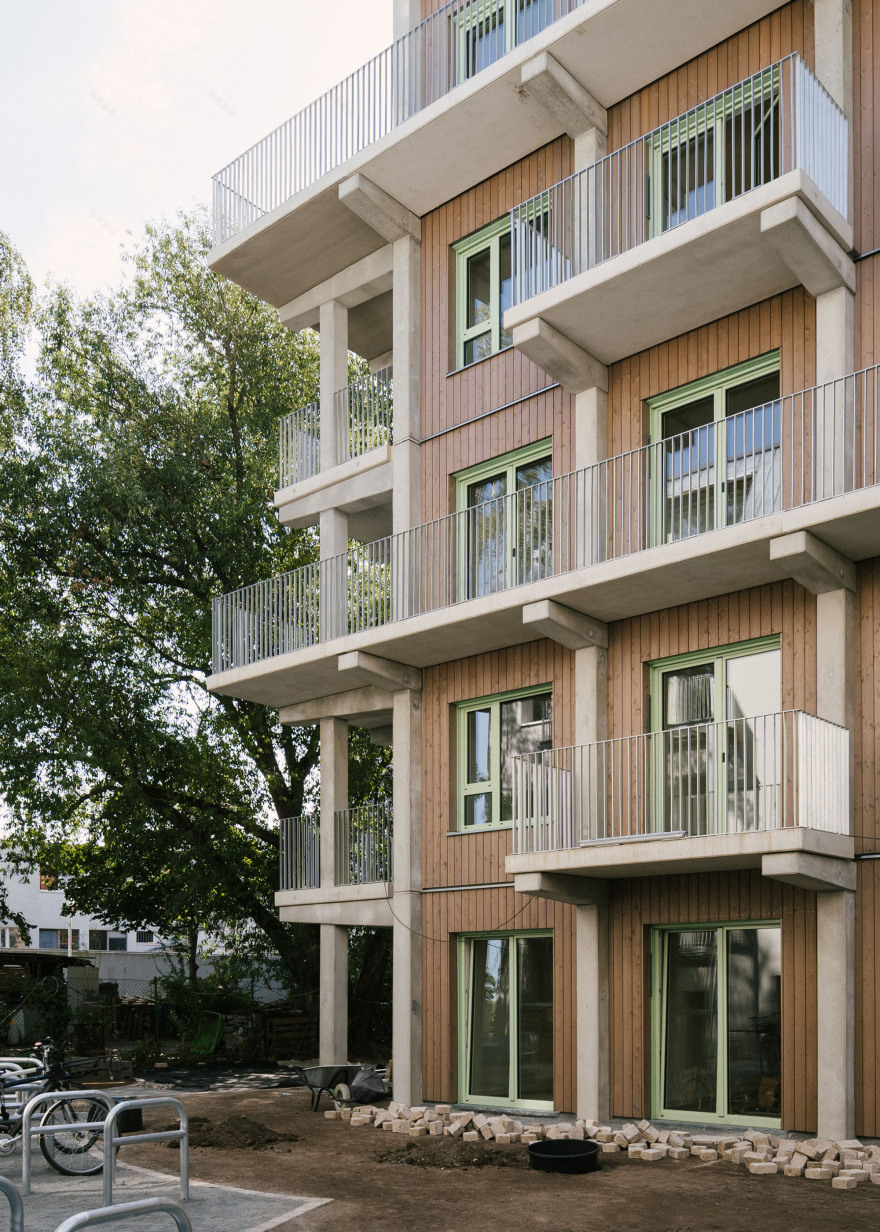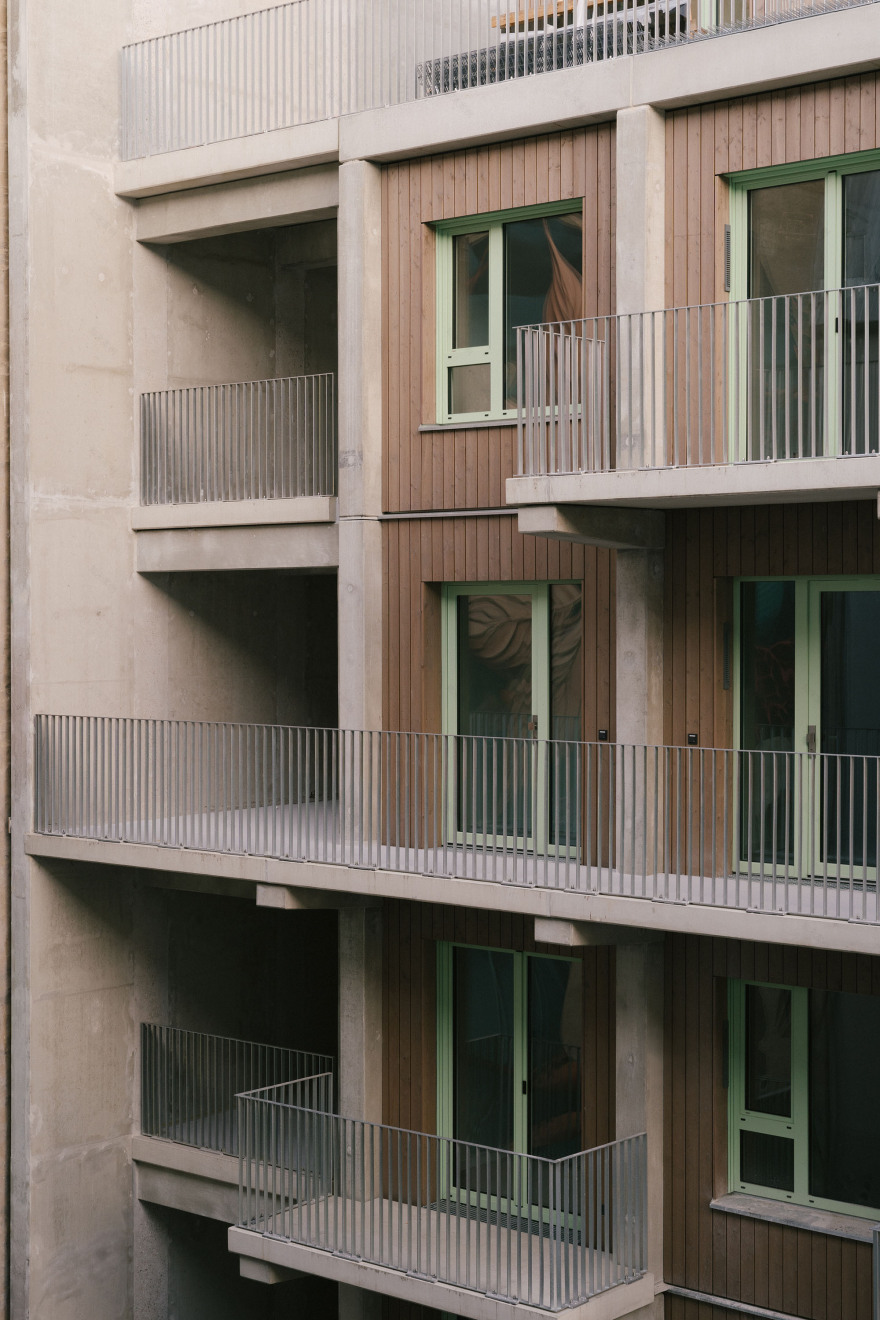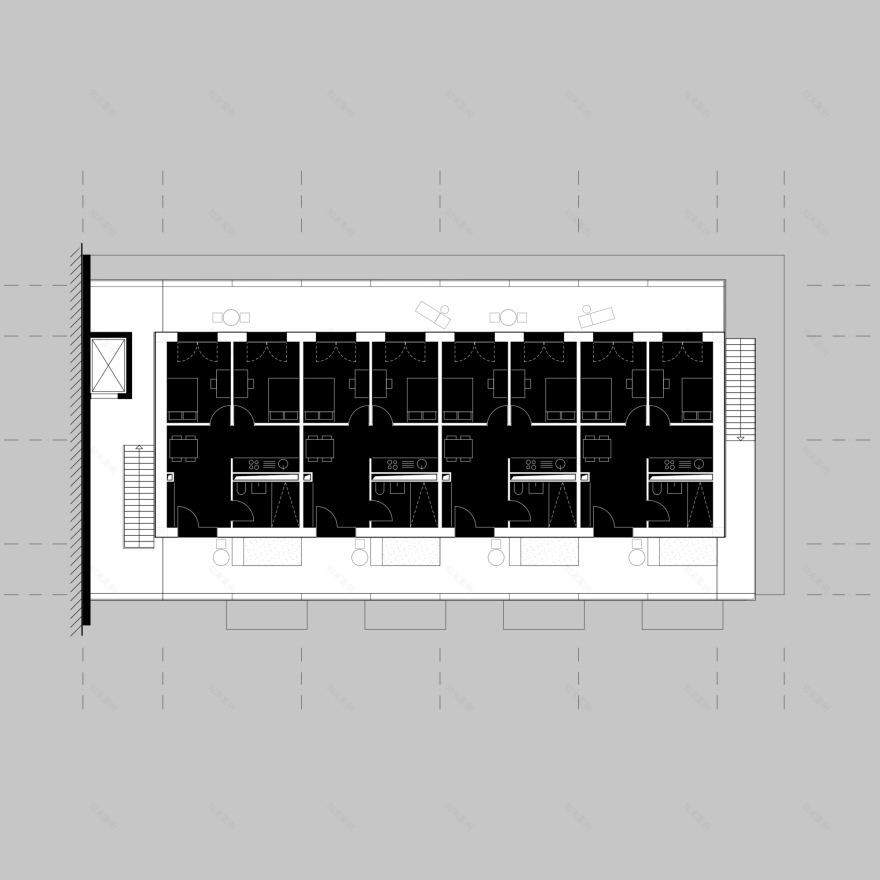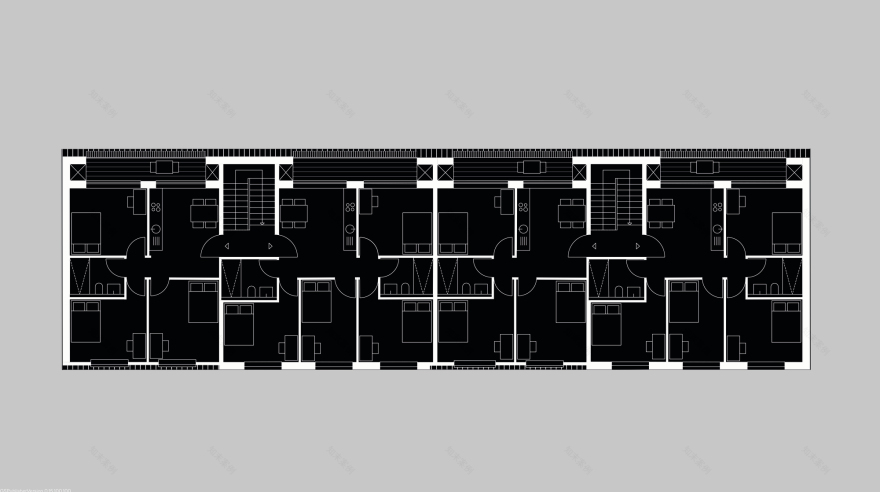查看完整案例

收藏

下载

翻译
Architects:Studio Loes
Area:2600m²
Year:2023
Photographs:Nate Cook
"Build less, much less, but dense, valuable and durable!" writes the architect and building historian Vittorio Magnago Lumpugnani in his latest essay “Gegen Wegwerfarchitektur” ("Against Throwaway Architecture"). A plea that the architects of STUDIO LOES also endorse: Their ensemble "Element & Lingot" has been extending an existing residential building from the Wilhelminian and post-war periods with a garden house in the inner courtyard ("Element") and four roof extensions on the existing buildings of the front and rear buildings ("Lingot") since summer 2023.
Both projects are characterized by the use of wooden modules and prefabricated concrete elements, which allowed for a very efficient and ecologically sustainable construction method. The architects of STUDIO LOES thus set an example for intelligent re-densification in a confined inner-city space and realize their vision of future-oriented urban residential architecture.
"Element & Lingot" is located in the Berlin district of Moabit, which is characterized by dense perimeter block development. The architects solved the challenge of creating a new living space here by using wooden modules and precast concrete elements.
Prefabrication reduced construction time and noise pollution. At the same time, four new penthouses were created on each of the two front and rear buildings, and a multi-story residential building was built between the existing buildings in the second row on a very small area: "Element" consists of five floors plus a stacked floor and contains twenty 3-5 room units, some of which extend as maisonettes over two floors and measure between 57-101 m2.
The exoskeleton of prefabricated reinforced concrete elements "turned inside out" forms the balconies of the apartments and turns stairwells and arcades into public areas that can be used by the residents in common. On the front sides, the stairwells are supplemented by lounge areas. Due to its open southeast orientation, the east facade has particularly spacious terraces and balconies that invite residents to linger under the sun. The entire building services are also located externally in the reinforced concrete skeleton.
The actual facade lies behind and consists of timber frame walls with prefabricated windows and doors. Inside, cross-laminated timber walls and ceilings serve as load-bearing elements. Due to the exterior circulation surfaces, all residents benefit equally from cross-ventilation as well as year-round sunlight.
"Element" is supplemented with two roof extensions on each of the two front as well as rear existing buildings, which complete the ensemble: "Lingot" contains a total of eight 4-5 room residential units between 54-75 m2 with extended balconies. "Lingot" was also built with prefabricated wooden modules and precast concrete elements. The roof form reinterprets that of the "Berlin roof" – with variance in height and vertical slopes. In this way, both roof extensions blend harmoniously into the surrounding existing buildings. The new apartments are accessed via the extended existing staircases.
"Resource-conserving and serial construction - for us, this not only has an ecological and economic dimension: finding solutions in limited spaces, working with modular, prefabricated, and ideally local components. Above all, it also has a social dimension: we want to construct buildings that are gladly used by their occupants and viewers - and thus last a particularly long time.
With 'Element & Lingot' we have created our first prototype for the architectural handling of these principles - in spite of all the static, structural-physical, and planning-law challenges. The fact that we are addressing an important topic of current urban and housing planning was also shown to us by the great interest in the construction site tour on this year's 'Day of Architecture'." (Project Manager Lukas Specks)
"Element" and "Lingot" were each built to Kfw-40 EE standards. Both projects feature extensive green roofs, a photovoltaic system, and heat pumps. The holistic sustainable approach for the ensemble is also continued in the concept for the outdoor facilities, where "Tiny Forrests" according to the concept by Akira Miyawaki are to be created between the houses.
Project gallery
客服
消息
收藏
下载
最近







































